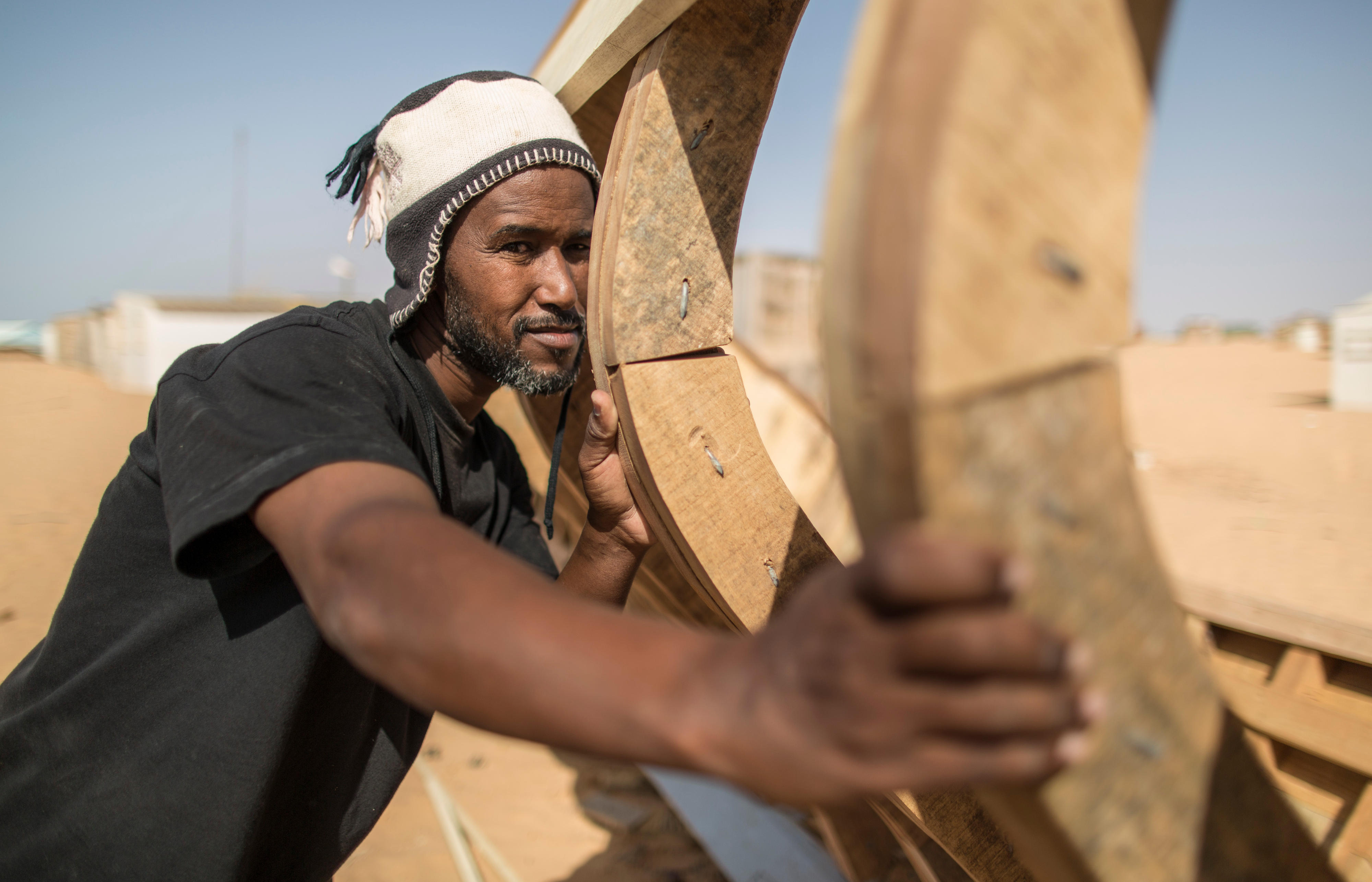Political situation Much need for action
Boat builder in R'Gueiba, Banc d'Arguin National Park, Mauritania
The 2019 presidential elections – in which six candidates ran – were peaceful. The election was won by Mohamed Cheikh El Ghazouani, the candidate who had the support of the governing party UPR (Union pour la République).
Parliamentary, municipal and regional elections were held in 2023. The governing party, now called El Insaf – rebranded from UPR in 2022 – won a clear majority in all three elections.
Ethnic discrimination
For a long time there was discrimination by the politically dominant Moorish ethnic group against those termed “Afro-Mauritanians”. This led to ethnic tensions. When they last escalated in 1989, tens of thousands of Afro-Mauritanians were forced to flee to Senegal and Mali. Several thousand people lost their lives.
Since the democratisation process was launched in 2005, the situation has become calmer. And yet, large sections of the Afro-Mauritanian population still have poorer access to education and social protection. The progressive “Arabisation” of the country is another recurrent source of conflict and protests. The pogroms of 1989/90 are a taboo topic and have never been addressed, either politically or judicially, or by society at large.
As at: 25/07/2023
